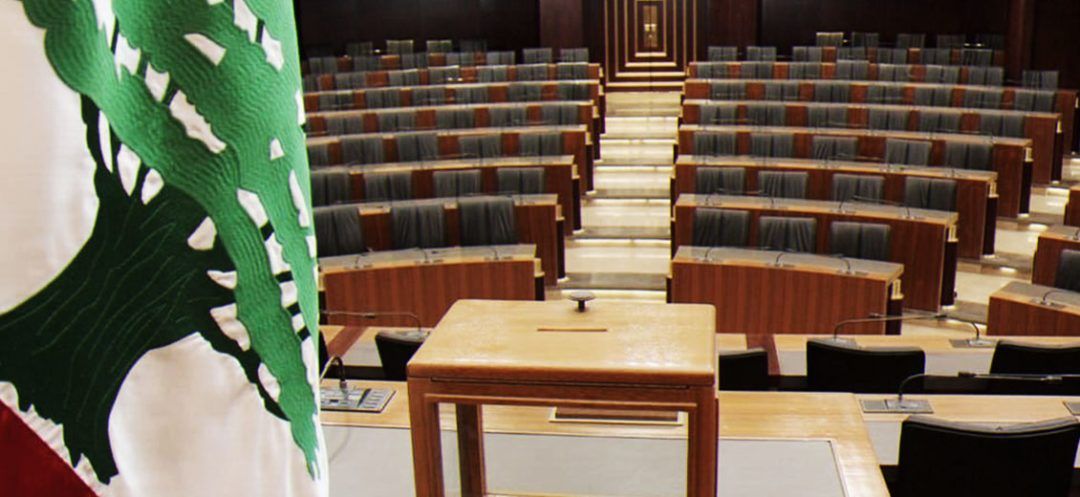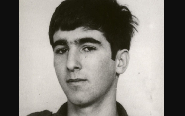
Jean-Yves Le Drian’s warnings fell on deaf ears among Lebanese officials. Neither his 2020 visit following the Beirut port explosion, when he warned of Lebanon’s demise, nor the recent statement he made during his last visit to Lebanon, succeeded to instigate any changes amongst the obstructive political forces towards reviewing their positions regarding the presidential dossier. Towards the end of his visit, the French President’s Special Envoy to Lebanon warned, “Political Lebanon will cease to exist, if the country fails to elect a President, and what will remain is geographical Lebanon.”
Le Drian referred to the deep-seated divisions among political forces, and the unwillingness to compromise or find common ground to elect a president. One who “will not challenge any party, will bridge these divisions, establish foreign relations, commit to the New York tripartite statement (US, France and Saudi Arabia), adhere to the Taif Agreement, comply with international resolutions and implement the needed reforms.” Upon his return to France, the French diplomat will submit to President Emmanuel Macron a report mentioning the “recklessness” of Lebanon's political leaders amid a potential threat of national collapse. The report will be a key item on the agenda at the US-French summit between Joe Biden and Macron on June 9 at the Élysée Palace.
Ahead of Le Drian's arrival in Lebanon, House Speaker Nabih Berri reiterated his proposal for a seven-day national dialogue followed by presidential election sessions. Meanwhile, Hezbollah reaffirmed its support for Sleiman Frangieh as its ultimate candidate. In this context, a diplomat made a swift comment, “As long as the Shiite party is adamant on supporting Frangieh, what is the point of a dialogue and what will it focus on exactly?”
In addition, the Shiite duo Amal-Hezbollah wanted to convey a message, via Le Drian, to France and the Quintet’s members (US, France, Saudi Arabia, Egypt and Qatar) that “the presidential election is tied to a broader regional resolution, and therefore, no discussions on any issue will occur before a ceasefire in Gaza.” Amid the duo's unwavering position, all initiatives, including that of the National Moderation Bloc, are futile.
The goal of Le Drian’s visit was to assess the situation, warn political parties about how serious it is, and explore an overall mechanism for electing a president which could be acceptable to all parties. Furthermore, the French envoy explained that his visit aligned with the Quintet's efforts. Despite the anti-Hezbollah camp’s objections, Le Drian insisted on the need for consultations that could resolve the presidential deadlock. But the opposition insists on following the election process as clearly outlined by the constitution.
They argue that the “Moumanaa axis” (Hezbollah and its allies) is blocking the presidential election to serve external and regional agendas. The axis hopes to use the persisting presidential vacancy to reclaim what it lost in the Taif Agreement by capitalizing on the new balance of power. In other words, this faction seeks to alter the system, structure and composition of the country to secure additional powers (perceived as advantages) while disregarding the resulting deterioration that could lead to the state's collapse.
Furthermore, Le Drian’s visit came as a final warning before Lebanon's potential total collapse. Berri's call for dialogue had been a major point of contention, but the French diplomat noted a newfound flexibility when Berri spoke of consultations rather than dialogue, effectively embracing the National Moderation Bloc’s initiative.
In response, the opposition urged Le Drian to ensure that Berri's words translate into actions. Lebanese Forces leader Samir Geagea expressed “caution” regarding Berri's shift of position, noting that he had previously agreed to the consultation-based initiative suggested by the National Moderation Bloc but swiftly reversed his position once the opposition endorsed it.
The opposition contends that any progress towards election should begin with dropping Frangieh's candidacy, rejecting the dialogue as a pre-condition for the presidential election, and electing a suitable president from a restricted list of candidates.
By claiming a so-called victory in Gaza, the Hezbollah-led camp would seek to capitalize on this locally and regionally, on the grounds that it “defeated” a major regional power and a seemingly invincible army.
Nonetheless, political circles close to Hezbollah reveal that the party’s position hinges on the outcome of the US elections. A potential election of Donald Trump would prompt Hezbollah to drop Frangieh’s candidature and agree to a settlement on American terms. But if Joe Biden is to be re-elected, the Iran-backed party would continue its confrontations, toughen its positions and postpone the presidential election.
Read more



Comments